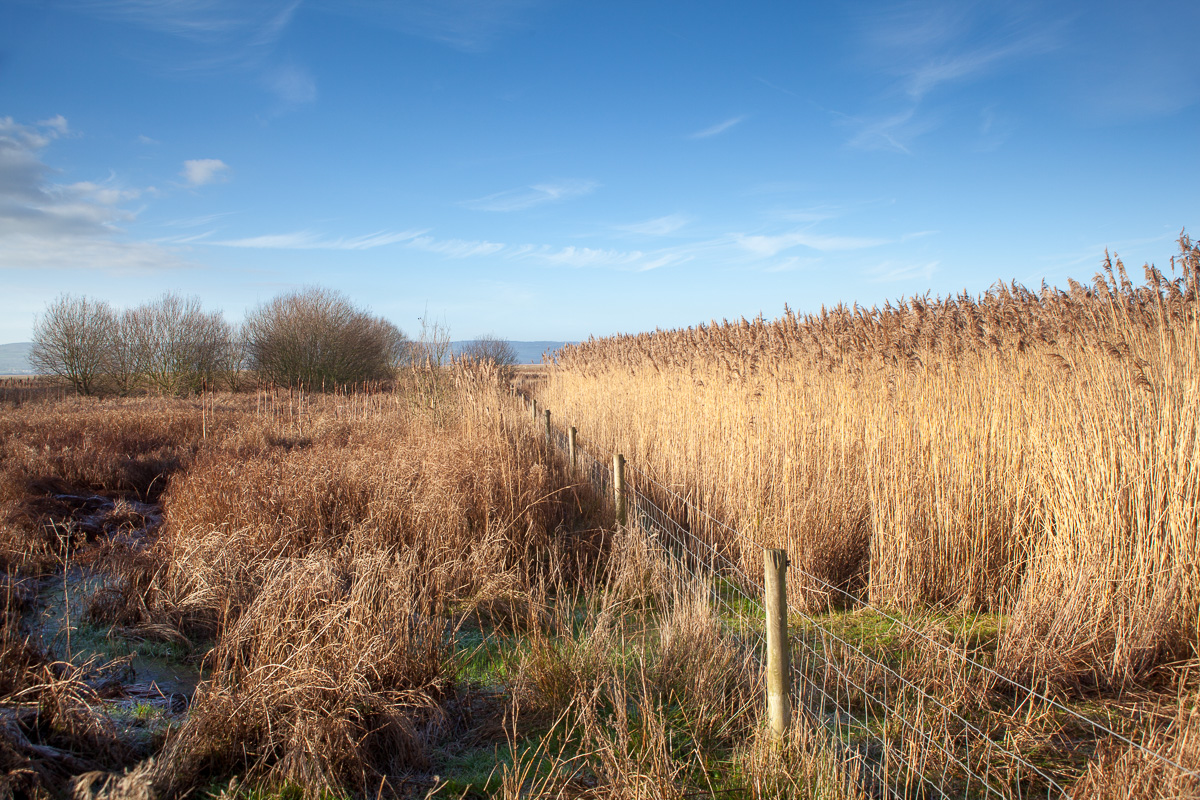· Burton Marshes, Wirral ·
A cold, crisp, windless, bright, sunny day: my favourite kind of weather.
I’d decided to take some test photos with my expensive new filter kit (a Christmas present from Jen). The basis of the kit is a frame that attaches to the front of the camera lens, into which you can slot one or more filters. I only have the one filter at the moment: a graduated grey number. The sky is usually a lot brighter than the land beneath. If you expose your shot correctly for the sky, the land can be under-exposed. If you expose correctly for the land, the sky can be over-exposed (or ‘blown-out’). Obviously, it’s possible to compensate for this when post-processing your photos on your computer, but it’s generally best to start off with as accurate an exposure as you can. A graduated grey filter helps you to achieve this by darkening the sky, making it possible to expose both sky and land correctly.
I wasn’t after any photographic masterpieces today. The point of the exercise was simply to re-familiarise myself with using graduated filters (it’s been many, many years). I soon re-discovered one old problem I’d forgotten about: my oldest lens’s barrel rotates when you focus, meaning the filter rotates with it, meaning you have to re-adjust the filter every time you focus. And making sure the grey part of the filter is darkening all of the sky but none of the land also takes practice. It’s all rather fiddly.
But fiddly is a good thing! One of my vague aims for this year is to try to do certain things more slowly. Anyone who knows me will doubtless be astonished to hear I could slow down even further. But I want to work at being more observant, and at at taking better photos. And the one thing I’ve learnt over the years about taking better photos is you need to slow down and think about what you’ve doing, instead of just snapping away. Having to faff about with filters will certainly help. Especially if, as is wise when using them, I also use a tripod. When it comes to photography, tripods are the ultimate faff. They’re also a total pain. But the resulting photos are always so much better.
There’s no way I’m going to be using my fancy new filter and my tripod every time I go out with my camera. But my plan this year is to go out on a number of slow photography expeditions, with the aim of coming back with perhaps just one good photograph, instead of lots of half-decent ones.

Spotted on my walk to Burton Point: hundreds of lapwings; a few curlews; marsh harrier; heron; wren; two long-tailed tits; a couple of robins; lots of crows. There was also something squawking monotonously from the alder carr near the Point. I stood there for five minutes hoping to catch a glimpse, as I had no idea whether it was a bird of prey, a gull, or something else entirely. Sadly, the identity of my mysterious squawker was to remain a mystery.
Leave a Reply